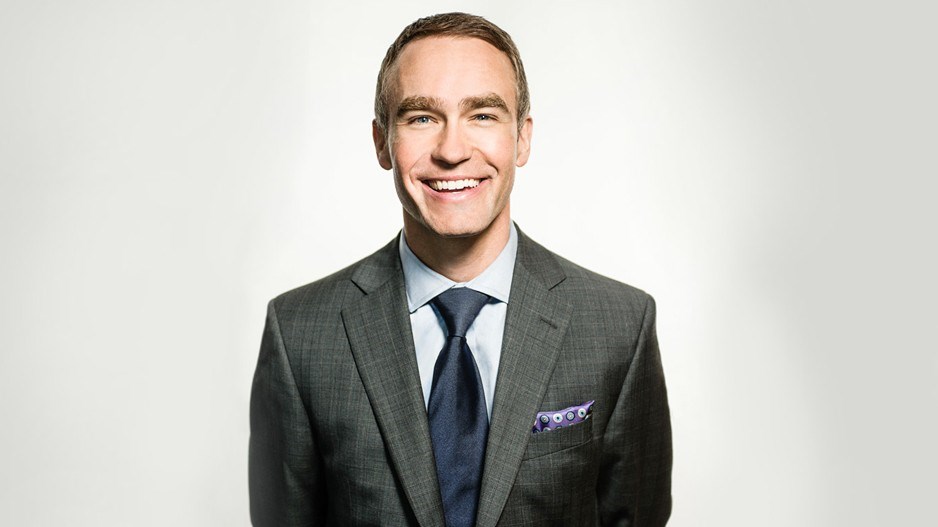Some number-crunching on the part of a U.S. tech executive being eyed to join a Vancouver company revealed a stunning income challenge for the coveted hire.
“He needed almost double what he was currently earning to maintain his current costs, his current cost of living and quality of life,” recalled recruitment specialist Shaun Carpenter, a partner at PFM Executive Search.
“The client was willing to do something really innovative and ended up covering his rent, or part of the cost of his rent for three years, while he worked in the Vancouver marketplace and then guaranteed transferring him to one of their U.S. offices after the three years and paying for his physical cost of the move twice.”
But lower salaries, higher living costs, the foreign buyer’s tax and exchange rates can make the prospect of recruiting top talent from outside Canada daunting for many organizations, according to Carpenter.
For Vancouver companies, that means many new U.S. CEO hires have remained south of the border to lead remotely during the pandemic.
Earlier this month communications equipment firm Sierra Wireless Inc. (TSX:SW) – one of B.C.’s largest homegrown tech employers – tapped U.S.-based Phil Brace as its new president and CEO.
Brace, a Canadian who earned a bachelor’s degree in applied science from the University of Waterloo, has spent most of his career in California and will remain living there as he leads the Richmond-based company.
A Sierra Wireless spokeswoman told BIV that Brace will be spending “a considerable amount of his time” at the company headquarters and other global offices once border restrictions loosen further (fully vaccinated Canadian citizens and eligible international travellers can enter the country without quarantining, but they must produce multiple negative COVID-19 tests).
Carpenter said it’s a common arrangement for certain companies looking to attract top talent to take a leadership position.
“If you’re looking at hiring your CEO and they won’t move to Vancouver for the role, but they are willing to operate out of a Bay Area regional office that the company has and sort of be headquartered there and be in Vancouver periodically, then there’s a willingness to look at it,” he said. “If it’s just a regional company and it doesn’t have those global offices, it’s much more unlikely to happen.”
In May, TransLink hired Maryland transit boss Kevin Quinn as its new CEO, and the Downtown Vancouver Business Improvement Association hired Nolan Marshall III as its new CEO. Both executives either moved or are moving to B.C. to lead their organizations.
But it’s a different story for many tech organizations going south of the border in search of a CEO, especially during the COVID era.
Like Brace, Hootsuite Inc. CEO Tom Keiser chose to remain based in northern California when he took on the position almost a year ago.
And Kelowna-based Two Hat Security Ltd. tapped former Disney Online executive Steve Parkis last fall to lead the company best known for specializing in tools that weed out inappropriate language or abusive content from gaming companies’ social networks. Parkis remains based in Florida.
But Carpenter said the jury is still out on whether the pandemic has moved the needle on companies’ willingness to recruit a CEO to work remotely.
A survey commissioned by PFM and other firms during the pandemic found that only 15% of organizations were “completely willing” to hire a leader to work virtually rather than relocate. Another 43% of respondents said they were “somewhat willing,” and the remaining 42% were “not at all willing.”
And tapping leadership talent from outside the country ended up sparking a major corporate shakeup in at least one case.
When Vision Critical Communications Inc. went south of the border in late 2019 to hire Canadian Ross Wainwright to take over the Vancouver-based data analytics firm, the company immediately moved its headquarters to Toronto (Wainwright’s original hometown) and soon thereafter rebranded as Alida.
Other recent American hires have taken different paths getting to Vancouver.
While Herschel Supply Co.’s newly hired CEO, Jon Hoerauf, hails from Michigan, he’s spent much of the last decade based in B.C., where he also served as president of Arc’teryx (Amer Sports Canada Inc.).
“There are a lot of factors that go into influencing business leadership relocation and whether or not they take a role,” Business Council of British Columbia CEO Greg D’Avignon told BIV last year.
They must consider not only quality of life, but also sector opportunities and whether their partners would be able to find a job, he added.
Citing figures from the B.C. government’s Small Business Profile 2017, D’Avignon said that because 98% of the province’s 404,000 companies employ 50 people or fewer, the West Coast lacks sizable business clusters that would allow CEOs to easily switch companies without uprooting their lives.
“For example, there are all kinds of really interesting clothing design and manufacturing companies, but the big players are effectively Arc’teryx, Lululemon [Nasdaq:LULU] and Aritzia [TSX:ATZ]. So if I’m a senior executive coming into this market that has experience in the retail and clothing business and it doesn’t work out with the company, I can’t just look around and say, ‘OK, I’ll move down to company X just down the street.’ And those kinds of opportunities are more pervasive in bigger centres like Toronto.”
Meanwhile, Carpenter said his recruitment firm looks outside of Canada “pretty regularly for most positions.”
“It’s not necessarily because the client doesn’t believe the talent exists in British Columbia or Canada, but it’s just that they want to ensure that they’re always looking for the best options that are available. The majority of the time in the end they end up selecting someone from Canada. And sometimes that’s due to the fact that the cost differential is just so significant, and sometimes it’s just the talent ends up being the best locally.”




